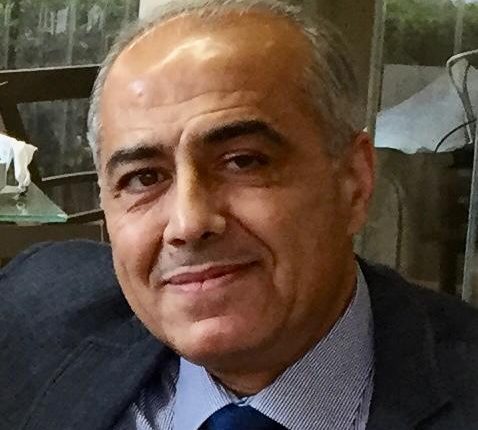FRANCE: ISLAM AND SEPARATISM
By Brigadier-General Monzer El Ayoubi*
Translation: Dr Pierre A. Sarkis

Leftist Islam, or “Islamo-Gauchisme” is a phrase that began to circulate among diverse French elites and social segments, whether educated or extreme right-wing, directed at, and hostile in part to Arabs and Moslems, and overall, to immigrants from countries formerly under French colonialism, and Africa.
But the more difficult, which deepened the rift vertically, was the phrase “Islamic Separatism”, which seemed harsher and more dangerous because of its effects and implications on the social structure, provoking division, debate and perhaps allegations not far from the truth, about violation of French laws by Moslems and immigrants. In parallel, this French attitude was a result of the establishing or founding of a kind of closed “Ghettos”, which refer to an area where a group of people live voluntarily or reluctantly, considered by the majority of the natives, in this case the French, ghettos of certain ethnic, religious or cultural backgrounds. The word ghetto was historically used to refer to closed Jewish neighborhoods, such as “the ghettos in the Center of Rome”, as well as, to describe slums and suburbs of private ethnic groups found in modern civilian centers (for example, Chinatown, Harlem and little Italy found in several US cities).
The use of these phrases by politicians and officials was shocking among Moslem and African immigrant circles of the first and second generations, whether those immigrants who amalgamated with the culture, customs and traditions of French society, or those who preserved some of their peculiarities, especially after the Minister of Higher Education, Frederique Vidal, claimed and warned that the Islamic Left was now gnawing at French academic institutions. On that same educational theme, the Minister of Education, Jean-Michel Blanquer, said that leftist Islam is inciting chaos in French academic institutions, announcing that investigations into these movements or stirrings will be carried out. From his part, French President Emanuel Macron, considered that Islamic separatism has endorsed under its flag groups that violate laws, plan and instigate incursions and attacks on French territory, something that will not be allowed.
On the other hand, and in a clear and banal political exploitation, the term Islamic Left was being used regularly by far-right politicians, as an effective tool to discredit their leftist opponents, accusing them of complacency towards the threats of Islamic extremism. Similarly, the French far-right and racist groups, opposed to the policy of absorbing immigrants, went to the limit when it began to bring together Islamic extremists, thinkers, and intellectuals, or activists with reformist and non-violent left-wing tendencies.
From these political, ideological and religious premises, and with support and encouragement from President Macron, and in the wake of the horrific crime which occurred last year, when Abdullah Anzorov slaughtered a teacher, Samuel Paty, after the latter presented his students with offensive cartoon images of Prophet Mohammed (peace be upon him), the French Parliament passed a bill to fight Islamic isolationism with the aim of preserving national unity and resisting Islamic extremism, thus, reinforcing the principles of the French Republic. The bill also perpetuates legal control over religious associations, their sources of funding and the financing of their activities, while tightening the knot on online social media, to curb the spread of hostility and mutual hatred.
On another level, and in a country where secularism has been enshrined as one of the foundations of its existence through the separation of church and state, problematic issues were raised about the practice of Islamic religious rites, specifically, “wearing the Hijab, the Burkini swimsuit, lifting calls to prayer, etc…”, and if perceptions were confused or rumored to the public, either by ignorance or by planning, it must be clarified from the onset that the “conspiracy theory” is fixed in its foundations, where extremist terrorist groups have been able to create and promote jurisprudence, fatwas (legal religious rulings), interpretations and practices far from Islam, and has nothing to do with it, which added to its legitimacy in specific environments, where people know nothing about the principles, the foundations, and the noble teachings of Islam.
In French circles, with its diverse spectrum and classification, the legislative proposal “Islamic isolationism”, and the inevitability of its adoption, was considered a logical response and a national necessity to confront radical Islam (as described), which represents an ideology belligerent to the principles and values on which France was founded. By contrast, it must be taken into account that this law might strengthen the resolve of right-wing extremism and religious discrimination, in conjunction with the fear of excessive ethnic and religious racism, which would affect Moslem societies, and tarnish their image severely in the countries of their intended immigration. Subsequently, and in afterthought, President Macron considered what he stated, or what was attributed to him, as profane exploitation by his opponents for populist and electoral purposes, confirming that The Financial Times, a London-based newspaper, altered the phrase Islamic Separatism, instead of “Islamism relative to extremist terrorist movements”, which attribute themselves to Islam.
In the same framework, Islamic religious, cultural and media institutions have failed to explain and point at the difference and dissemination of Islam, the religion of mercy and compassion with one and a half billion followers, and Islamism, the political ideology adopted by political or ideological groups, which quote selectively from the concepts and rules of the Shari’a (the constitution of Islam), what suit them and serve their objectives (al Jihad or religious war, the Islamic State, etc…), to topics related to the organization of society, considered under the guise of Islam as a religion and a realm. The topic can be delved into, and expanded and elaborated on, in its presentation and solutions, in view of its importance and future repercussions. However, a lot can be said (tell me about it), regarding the role of the intelligence services, which have been immersed in polluting and distorting the image of Islam for decades, to serve the strategic objectives of their subordinate countries.
Subsequently, it seems that the Islamic Left, Islamic separatism, and Islamism figure to be at the core of French political, legislative and executive institutions, and therefore, the challenges are big, and many of them require remedies, least of which is the dissemination of awareness through knowledge, and through the media, along with fighting religious extremism in thought and culture. Don’t the permanent beginnings of the evidence-based verses of the Koran, start with “In the Name of God Most Gracious and Merciful?” The remedies also require confronting terrorist organizations which falsely raise the flag of Islam, through the intelligence, security, and military apparatuses of Islamic countries, as they threaten their own systems and entities before threatening Western countries.
In conclusion, Islam is one of the three heavenly revealed religions, its seal and ideal, a message of good and peace for all mankind in which faith is happiness, repentance is forgiveness, beauty of creation, nobility of manners, and hearts beating with mercy and love. In the holy month of Ramadan, we may remind the oppressors, politicians or rulers, that if we or others read, we remember the saying of Imam Ali (may God be pleased with him), for maybe the commemoration will help them when he was asked, “what separates earth from heaven?”, to which he answered, “farsightedness and the curse of the oppressed…”
Beirut, 17/04/2021
*Scholar in Security and Strategic Affairs

